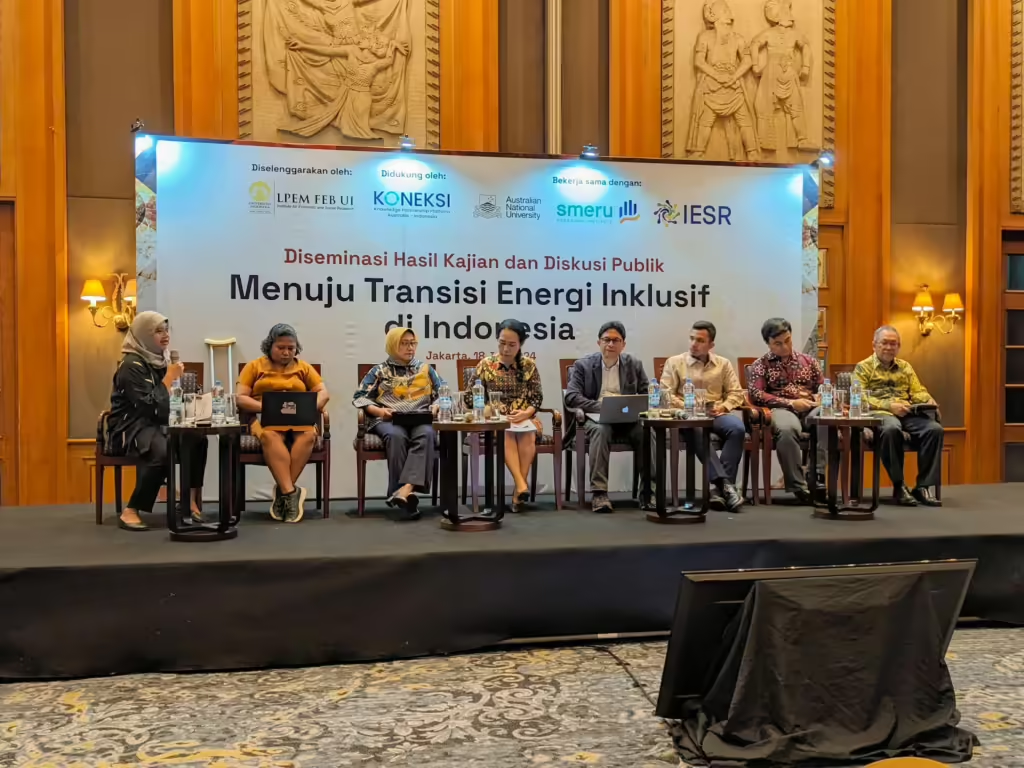
Jakarta, 1 Februari 2024 – Lembaga Penyelidikan Ekonomi dan Masyarakat Fakultas Ekonomi dan Budaya Universitas Indonesia (LPEM FEB UI) menerbitkan laporan “Dampak Ekonomi Industri Layar di Indonesia – sebuah peluang”, yang ditulis bersama PwC Indonesia. Laporan menunjukkan bahwa Industri layar di Indonesia memberikan dampak ekonomi signifikan pada tahun 2022, dengan total kontribusi terhadap output sebesar USD 8,2 miliar (Rp 130 triliun), kontribusi terhadap PDB sebesar USD 5,1 miliar (Rp 81 triliun), dan penciptaan lapangan pekerjaan bagi 387.000 individu. Industri ini diproyeksikan bertumbuh dengan tingkat Compound Annual Growth Rate (CAGR) sebesar 6,13% dalam kurun waktu 2023 hingga 2027. Studi ini juga mengeksplorasi potensi manfaat ekonomi dari pengembangan industri layar, mengidentifikasi isu-isu penting yang dapat menghambatperkembangan industri, dan memaparkan opsi kebijakan yang memiliki potensi untuk mendukung perkembangan industri layar di Indonesia.
Menurut Prani Sastiono, PhD, peneliti LPEM FEB UI, total dampak ekonomi industri layar pada tahun 2027 diestimasi meningkat sebesar 17% pada output, 17% pada kontribusi NTB/PDB, dan 37% pada lapangan kerja dibandingkan tahun 2022. Setiap tambahan pendapatan sebesar Rp 1 triliun diestimasi menghasilkan peningkatan output sebesar Rp1,43 triliun, peningkatan kontribusi PDB sebesar Rp 892 miliar, dan penciptaan 4.300 lapangan kerja baru yang berkualitas. Denny Irawan, PhD, Head of Economics and Research PwC Indonesia, turut menambahkan bahwa bioskop dan online curated content (OCC) diperkirakan akan berkembang pesat dengan CAGR sebesar 15,09% dari tahun 2022 hingga 2027, akibat investasi pada layar bioskop di Indonesia dan kemunculan pemain lokal dan internasional di pasar Indonesia.
Selain pertumbuhan ekonomi, industri layar Indonesia juga menghasilkan tingkat produktivitas tertinggi di antara seluruh sektor ekonomi kreatif Indonesia. Pada tahun 2021, industri layar mempekerjakan 150.000 pekerja dan menyumbang USD 7,8 miliar (Rp 125 triliun) NTB terhadap perekonomian Indonesia pada tahun 2020. Dalam industri layar, televisi memberikan kontribusi nilai ekonomi terbesar, terlihat dari NTB pada kisaran USD 7,7 miliar (Rp 122,7 triliun) di tahun 2020.
Julian Smith, Direktur PwC Indonesia, menuturkan: “Industri layar juga dapat menstimulasi aktivitas ekonomi di sektor lain melalui spillover non-transaksional. Pengeluaran pada industri layar dapat menciptakan manfaat spillover seperti peningkatan minat pariwisata akibat film, peningkatan penjualan karya tulis yang diadaptasi menjadi film, atau peningkatan streaming untuk musik yang menjadi bagian serial TV. Hal ini menciptakan peluang bagi bisnis lokal di sektor lainnya, termasuk pengembangan produk dan layanan dalam bentuk tur, ekshibisi, dan merchandise.”
Walaupun terdapat peluang signifikan bagi industri layar di Indonesia, terdapat pula sejumlah hambatan untuk perkembangannya, antara lain ketiadaan definisi baku industri layar, keterbatasan pendanaan, keterbatasan jumlah tenaga kerja terampil, keterbatasan infrastruktur, serta tantangan regulasi dan penegakan hukum.
Beberapa opsi rekomendasi kebijakan diusulkan dalam laporan ini untuk mendukung pengembangan industri layar di Indonesia, diantaranya memperbarui dan menyederhanakan peraturan, pembaruan dan peningkatan keterampilan, meningkatkan kapasitas infrastruktur di industri layar, dan menawarkan insentif untuk menarik investor global dan lokal ke industri layar.
Dr. Hera Susanti SE, MSc, Wakil Direktur LPEM FEB UI mengatakan, “Kerangka peraturan berperan penting dalam mendorong pertumbuhan industri, termasuk industri layar. Di Indonesia, terdapat kebutuhan yang semakin besar untuk menyempurnakan dan memperbarui definisi industri layar, dengan mempertimbangkan dinamika industri dan praktik terbaik internasional, untuk memperoleh persepsi bersama dari para pemangku kepentingan. Selain itu, untuk mendukung dan memajukan pertumbuhan industri layar, diperlukan insentif dan regulasi mengenai produksi, lokasi syuting, atau faktor-faktor lain yang menjadikan Indonesia lebih menarik sebagai tujuan investasi di industri layar, serta bermanfaat bagi masyarakat.”
Direktur Kebijakan Publik Netflix Asia Tenggara, Ruben Hattari menambahkan, “Kami berharap studi ini dapat memperkuat pandangan pemerintah dan pemangku kebijakan terkait dampak positif dari investasi produksi film lokal, terutama dalam hal penciptaan lapangan kerja dan pertumbuhan ekonomi. Sehingga ke depannya industri layar Indonesia bisa semakin memegang peran penting dan mendapat dukungan yang dibutuhkan.”




